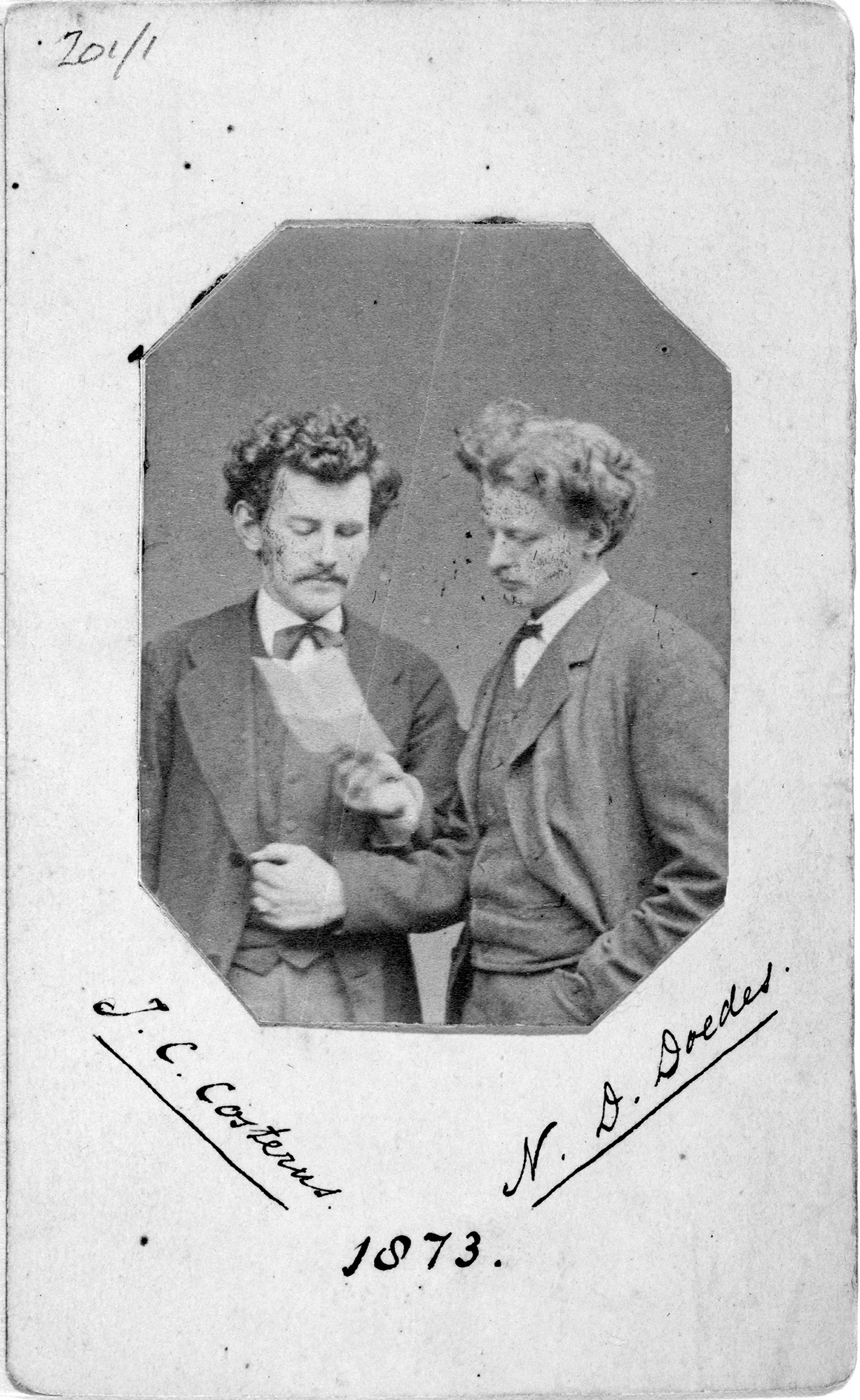Bad Request
Your browser sent a request that this server could not understand.
Apache Server at dcp-public.lib.cam.ac.uk Port 443
Search:
in keywords
2 Items
List of correspondents
Summary
Below is a list of Darwin's correspondents with the number of letters for each one. Click on a name to see the letters Darwin exchanged with that correspondent. "A child of God" (1) Abberley,…
Matches: 12 hits
- … Below is a list of Darwin's correspondents with the number of letters for each one. …
- … Airy, Hubert (27) Aitchison, William (2) …
- … Baird, S. F. (1) Baird, William (1) …
- … Baxter, W. W. (36) Baxter, William (7) …
- … Bennett, A. W. (21) Bennett, William (2) …
- … (1) Berliner Gesellschaft für Anthropologie, Ethnologie und Urgeschichte …
- … Blanche (2) Blenkiron, William, Jr (1) …
- … Bowles, W. B. (2) Bowman, William (29) …
- … Frank (17) Buckland, William (6) …
- … Clephan, T. R. (1) Clift, William (1) …
- … Dareste, Camille (9) Darwin family (1) …
- … Hubrecht, A. A. W. (3) Huggins, William (2) …

Darwin's in letters, 1873: Animal or vegetable?
Summary
Having laboured for nearly five years on human evolution, sexual selection, and the expression of emotions, Darwin was able to devote 1873 almost exclusively to his beloved plants. He resumed work on the digestive powers of sundews and Venus fly traps, and…
Matches: 27 hits
- … evolution, sexual selection, and the expression of emotions, Darwin was able to devote 1873 almost …
- … (1875) and Cross and self fertilisation (1876). Darwin’s son Francis became increasingly …
- … career to become his father’s scientific secretary. Darwin had always relied on assistance from …
- … Francis’s decision. A large portion of the letters Darwin received in 1873 were in response …
- … the previous year. As was typical, readers wrote to Darwin personally to offer suggestions, …
- … some of which were incorporated in a later edition. Darwin also contributed to discussions in the …
- … Francis Galton’s work on inherited talent, which prompted Darwin to reflect on the traits and …
- … Station at Naples. Plants that eat and feel? Darwin had resumed experiments on the …
- … 12 January [1873] ). Drosera was the main focus of Darwin’s study of insectivorous plants, a …
- … and alkaloids, and even electrical stimulation. On sending Darwin a specimen of the carnivorous …
- … ( letter from J. D. Hooker, 12 January 1873 ). Darwin found that the glandular hairs on the …
- … to bend inward, so that the plant closed like a fist. Darwin was fascinated by this transmission of …
- … plants , p. 63). The plants secreted a viscid fluid, which Darwin suspected attracted insects by …
- … ., p. 17). Through a series of painstaking experiments, Darwin determined that the secretions …
- … botanist Mary Treat, who performed experiments suggested by Darwin on the North American species …
- … . He began to perform experiments modelled on those of Darwin, feeding the plant egg and raw meat, …
- … guide to animal experimentation that Klein had co-authored. Darwin contacted two of the Handbook …
- … (letter from ?, [1873?]). The Scottish physician William Main suggested that facial movements could …
- … & sadness & decay with the reverse—” ( letter from William Main, 2 April 1873 ). The …
- … without instruction or previously acquired knowledge” (A. R. Wallace 1870, p. 204). Moggridge …
- … in Nature magazine, forwarding a letter from William Huggins on a case of inherited instinct in …
- … noted his passion for collecting, the value of Euclid and William Paley as educational influences, …
- … Lubbock, Herbert Spencer, John Tyndall, George Busk, and William Spottiswoode met with Darwin in …
- … June, stayed with the Farrers in Surrey and with their son William in Southampton in August, and …
- … believes whether or not they are sound” ( letter to A. R. Wallace, 17 November 1873 ). But no …
- … unorthodoxy, troubling and potentially undermining (J. R. Moore 1985, pp. 471–2). A courted …
- … a personification of Natural Filosofy” ( letter from J. C. Costerus and N. D. Doedes, 18 March 1873 …


